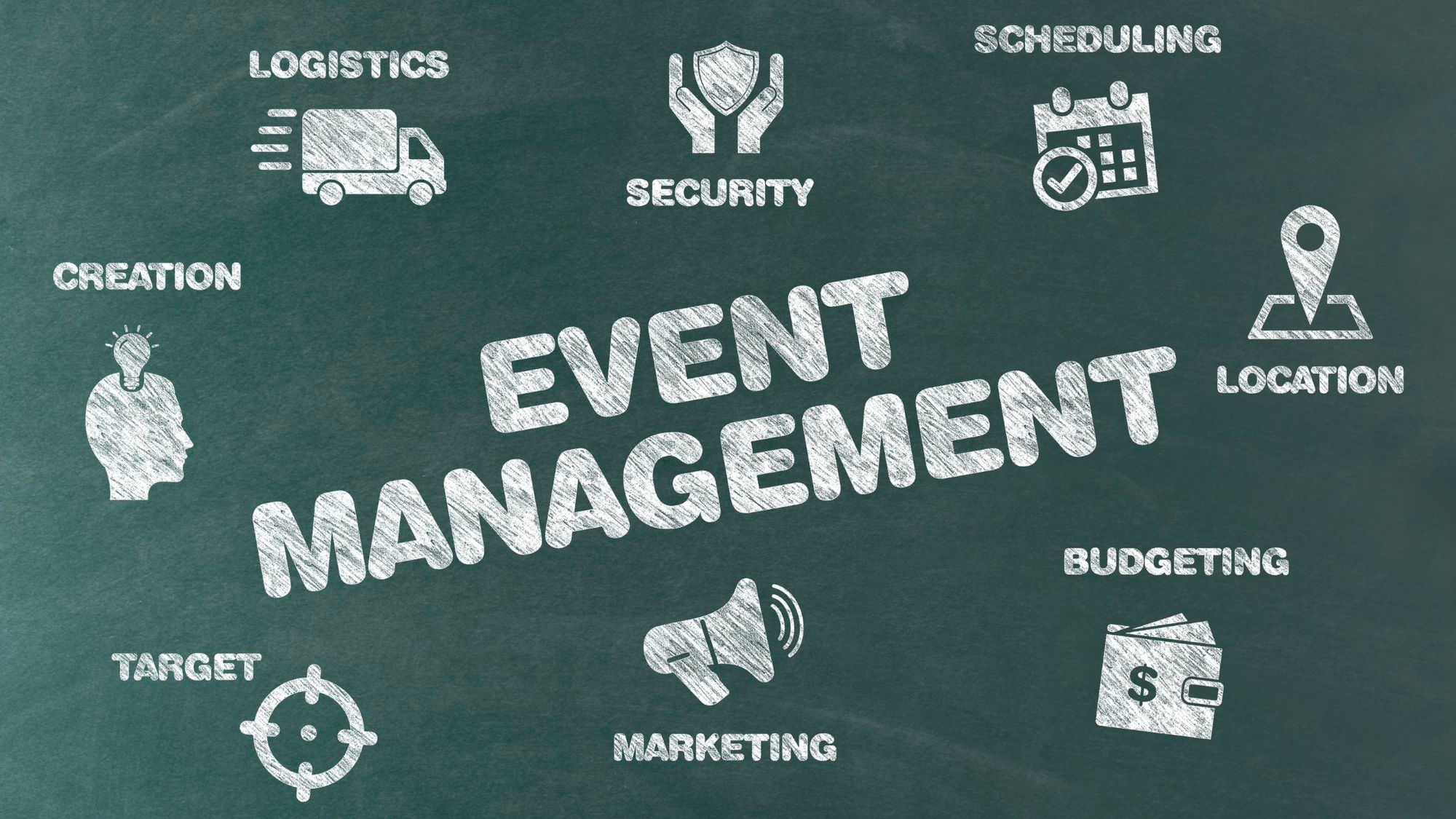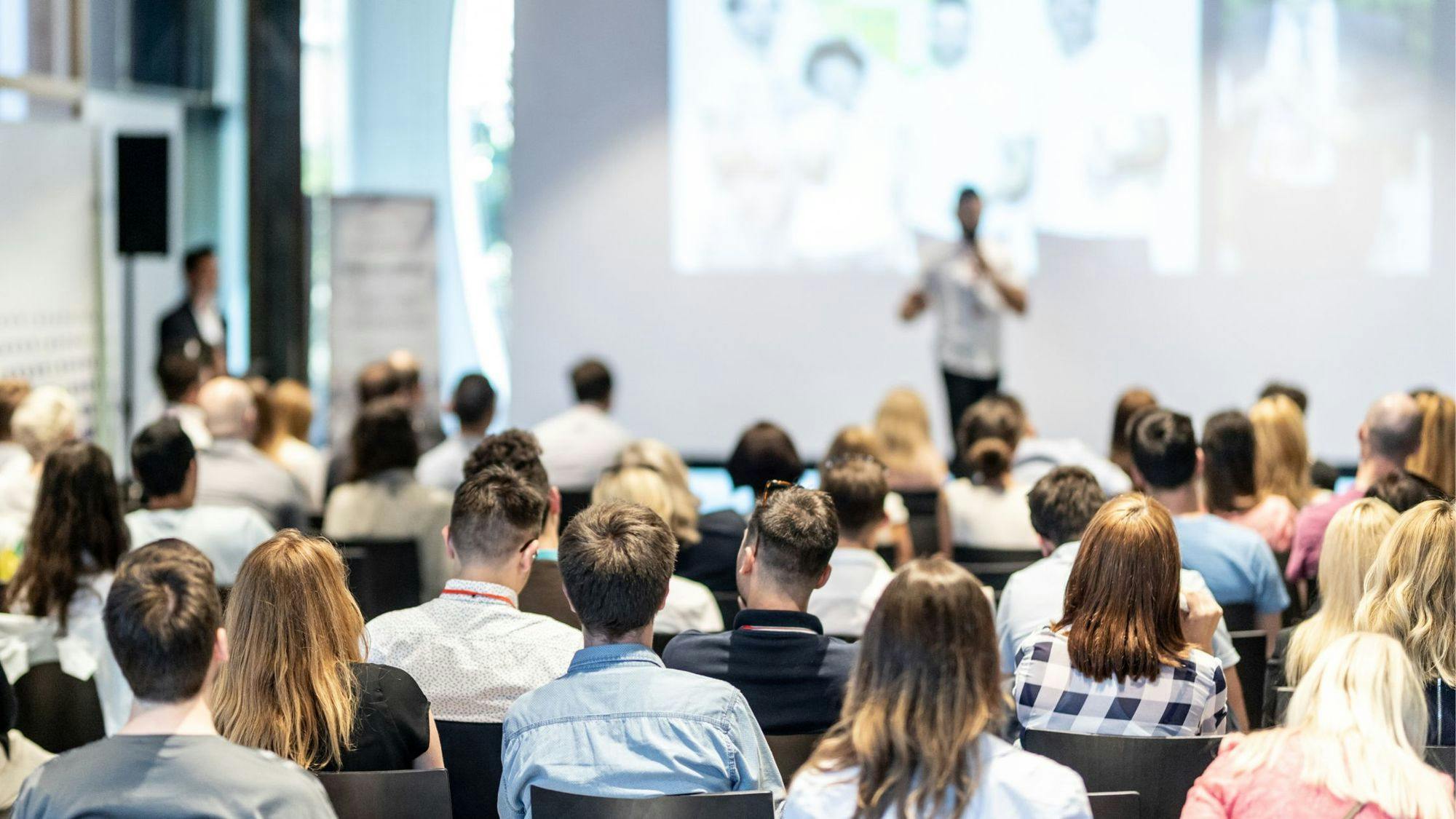- /
- Events/
The Definitive Guide to Event Planning
Introduction to Event Planning Services
Planning and executing a successful event requires a myriad of tasks, attention to detail, and the ability to bring a vision to life. This is where event planning services come into play. Whether you're organising a corporate conference, a wedding, a social gathering, or a nonprofit fundraiser, enlisting the expertise of professional event planners can make all the difference in creating a memorable and seamless experience for both hosts and attendees.
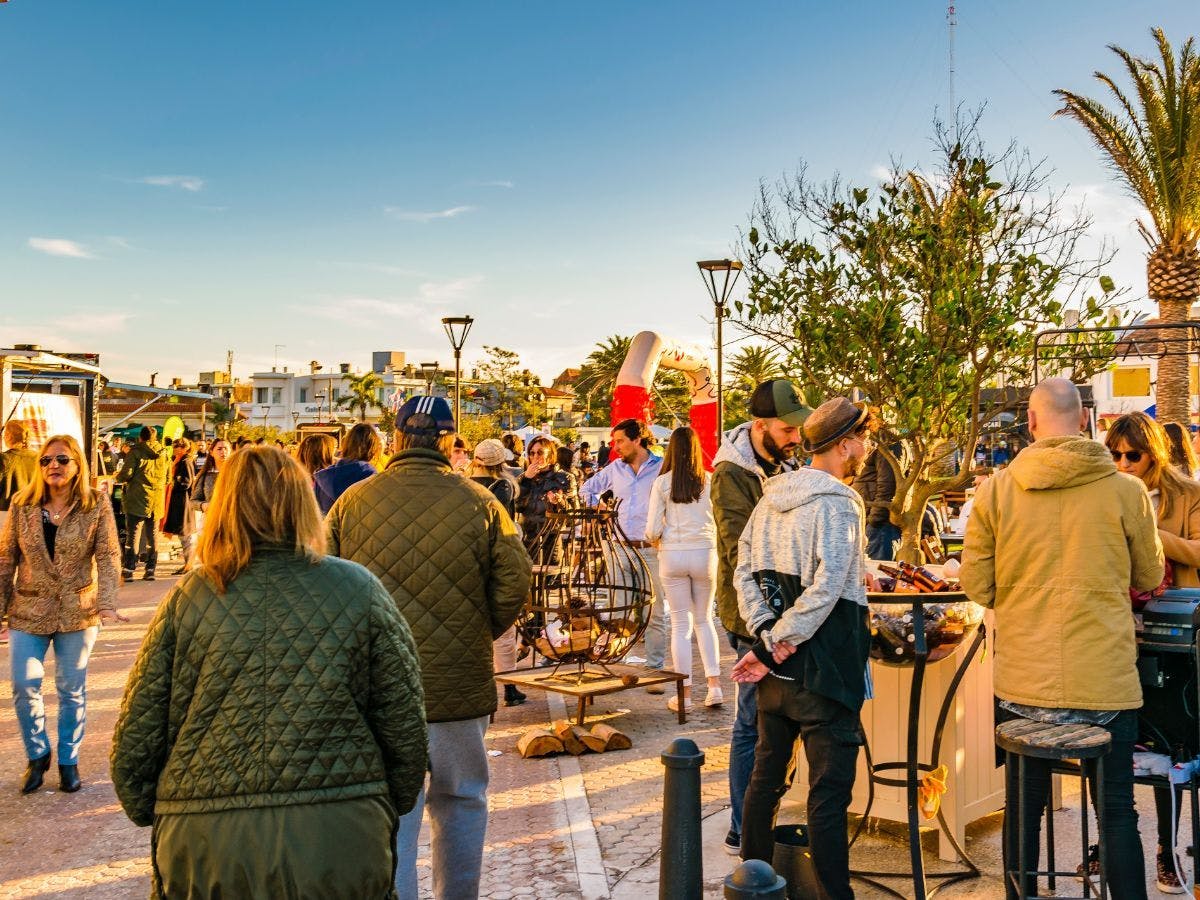
Overview of the event planning industry
The event planning industry has witnessed tremendous growth in recent years, driven by the increasing demand for well-organised and immersive experiences. Event planners bring a wealth of knowledge and expertise, leveraging their skills to transform ideas into reality. They navigate the intricate details of event logistics, design, coordination, and execution, ensuring that each element comes together harmoniously.
Benefits of hiring event planning services
Entrusting your event to professional event planning services is the ultimate stress-reliever. Let the experts handle the intricate details, timelines, and coordination, allowing you to relax and fully immerse yourself in the experience.
Hiring event planning services offers a multitude of benefits for both individuals and businesses. Firstly, event planners alleviate the stress and overwhelm that often accompany event organisation, allowing you to focus on your core objectives and enjoy the event itself.
They bring a wealth of industry knowledge, vendor connections, and negotiation skills, helping to streamline the planning process and optimise available resources. Additionally, event planners possess a keen eye for design, ensuring that every aspect of the event, from decorations to ambiance, is meticulously crafted to create you an unforgettable experience.
Types of events covered by event planners
Event planners specialise in a wide range of events, tailoring their services to meet the unique needs of each occasion. From corporate events such as conferences, seminars, and product launches, to personal celebrations like weddings, birthdays, and anniversaries, event planners possess the versatility and expertise to handle diverse event types. Here are some event types below:
Corporate events:
- Conferences
- Seminars
- Product launches
Personal:
- weddings
- birthdays
- anniversaries
- reunions
Nonprofit:
- Nonprofit events
- Charity events
Why professional event planning is important
Professional event planning is essential for the success of any event. While some may consider handling the planning themselves, the intricacies involved can quickly become overwhelming. Event planners possess the knowledge, experience, and industry insights necessary to navigate challenges, mitigate risks, and maximise the potential of an event. Their meticulous attention to detail ensures that no aspect is overlooked, resulting in a seamless and memorable experience for both hosts and attendees.
1. The Event Planning Process
Planning an event involves a series of strategic steps that ensure a smooth and successful outcome. Event planners follow a comprehensive process that encompasses everything from the initial consultation to the execution of the event. Let's explore the key stages involved in the event planning process.
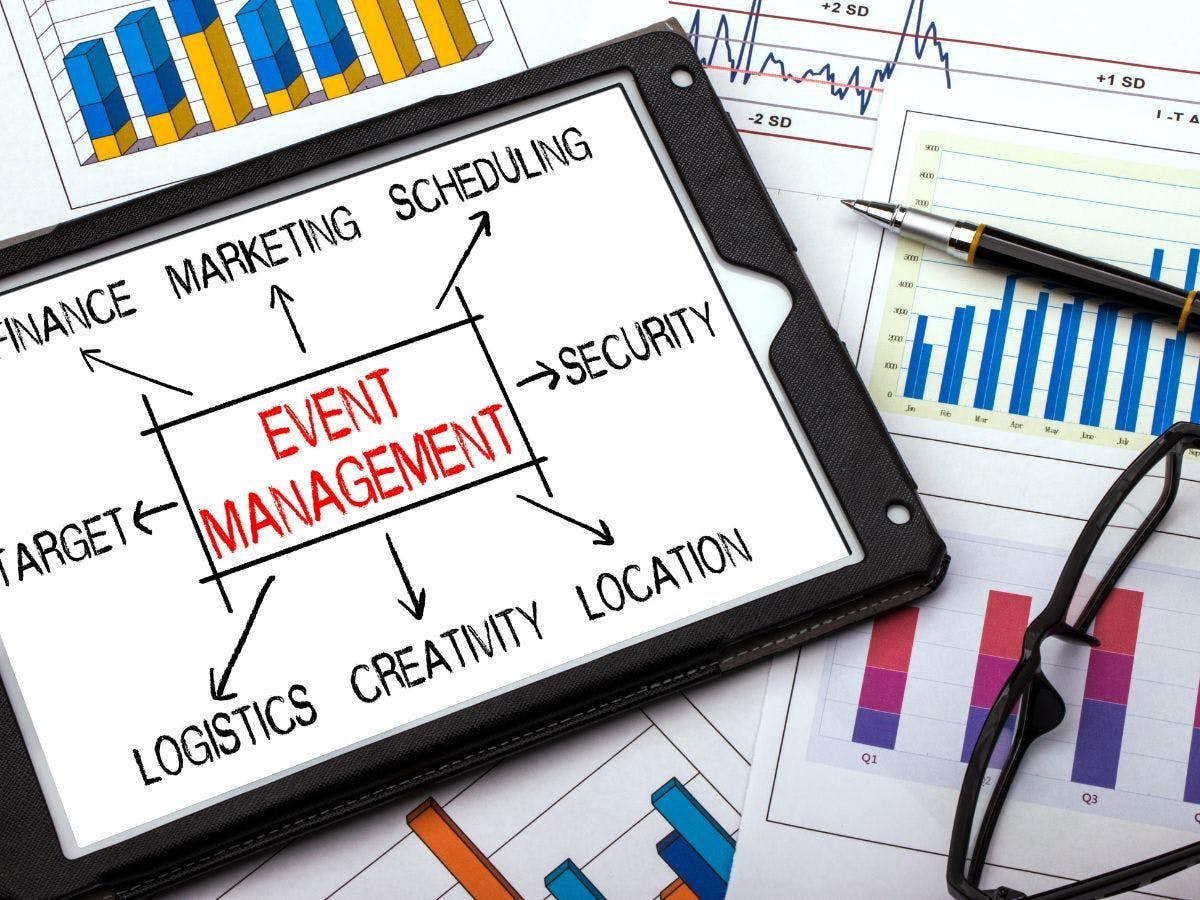
1. Initial consultation and needs assessment
The first step in event planning is the initial consultation and needs assessment. Event planners engage in detailed discussions with clients to understand their objectives, vision, and specific requirements for the event. This includes determining the purpose of the event, the target audience, the desired atmosphere, and any logistical considerations. Through effective communication, event planners gather essential information that forms the foundation for planning a successful event.
2. Budgeting and financial management
Budgeting and financial management are crucial aspects of event planning. Event planners work closely with clients to establish a realistic budget based on their requirements and financial resources. They allocate funds to different elements of the event, such as venue, catering, entertainment, decor, and marketing. By meticulously tracking expenses and managing finances, event planners ensure that the event stays within budget while still delivering a high-quality experience.
3. Event concept and theme development
Creating a captivating event concept and theme is vital for setting the tone and engaging attendees. Event planners collaborate with clients to develop a cohesive and compelling concept that aligns with the event's purpose and target audience. This includes selecting a theme, determining the overall ambiance, and incorporating branding elements. Event planners bring their creativity and industry knowledge to the table, suggesting innovative ideas and design elements that will make the event visually appealing and memorable.
4. Venue selection and logistics planning
Choosing the right venue is a critical decision that impacts the overall success of an event. Event planners consider factors such as capacity, location, amenities, and accessibility when recommending suitable venues to clients. They conduct thorough research, visit potential venues, and negotiate contracts to secure the best options within the allocated budget. In addition to venue selection, event planners handle logistics planning, including coordinating transportation, accommodation, permits, and any necessary technical requirements. They develop detailed timelines and schedules to ensure a seamless flow of activities before, during, and after the event.
2. Event Design and Decor
The design and decor of an event play a crucial role in creating a captivating atmosphere that resonates with attendees. Event planners bring their creative expertise to transform venues into immersive spaces that leave a lasting impression. Let's explore the key aspects of event design and decor.
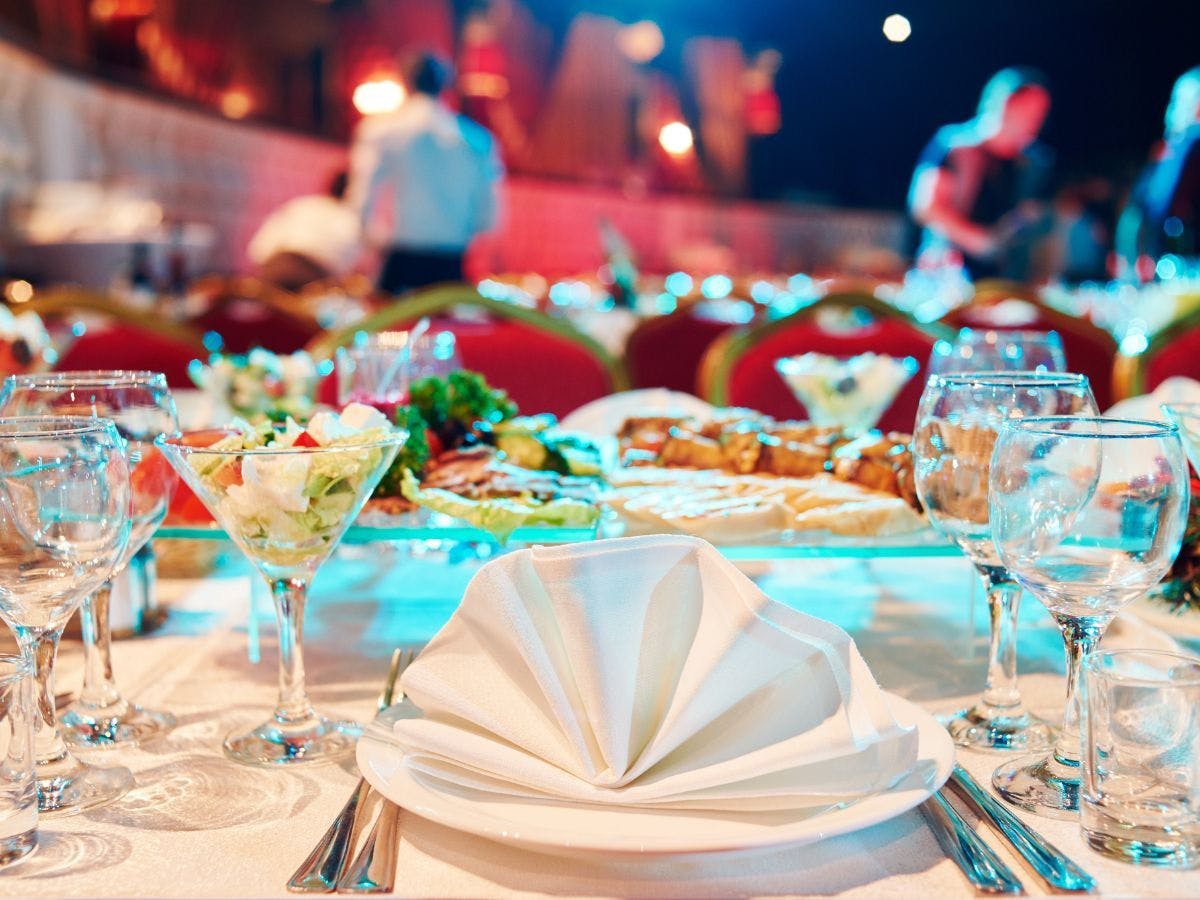
Creating event atmosphere and ambiance
Crafting the right atmosphere and ambiance is essential to evoke the desired emotions and engage attendees. Event planners work closely with clients to understand their vision and objectives, translating them into a cohesive and immersive experience. They consider elements such as lighting, sound, music, and scent to create a multi-sensory environment that aligns with the event's purpose and theme. By carefully curating these components, event planners set the stage for a memorable and impactful event.
Theme and colour scheme selection
Selecting a theme and colour scheme is a fundamental part of event design. Event planners collaborate with clients to determine a theme that reflects their vision and resonates with the target audience. Whether it's a rustic country theme or a modern and sleek aesthetic, event planners provide guidance on the selection of colours, textures, and design elements that bring the theme to life. The chosen colour scheme sets the tone, conveys the event's message, and ensures a cohesive visual experience throughout the venue.
Event layout and floor plans
The layout and flow of an event greatly impact the attendee experience. Event planners strategically design floor plans that optimise space, facilitate smooth navigation, and encourage interaction among attendees. They consider factors such as seating arrangements, traffic flow, and designated areas for activities, presentations, and networking. By creating well-thought-out layouts, event planners maximise the functionality and engagement of the event, ensuring that every corner of the venue serves its purpose.
Decorations, props, and centrepieces
Decorations, props, and centrepieces are key elements that contribute to the overall aesthetic and ambiance of an event. Event planners curate a selection of decor items that align with the theme and client preferences. This includes selecting appropriate table centrepieces, floral arrangements, backdrops, signage, and props that enhance the visual impact and reinforce the event's message. Event planners work closely with vendors and designers to source and coordinate the setup of these elements, ensuring that every detail is in place to create a visually stunning and cohesive event design.
3. Vendor Management
When planning an event, collaborating with reliable and competent vendors is crucial for its success. Event planners excel in vendor management, leveraging their industry connections and expertise to ensure that all aspects of the event are handled seamlessly. Let's delve into the key components of effective vendor management.
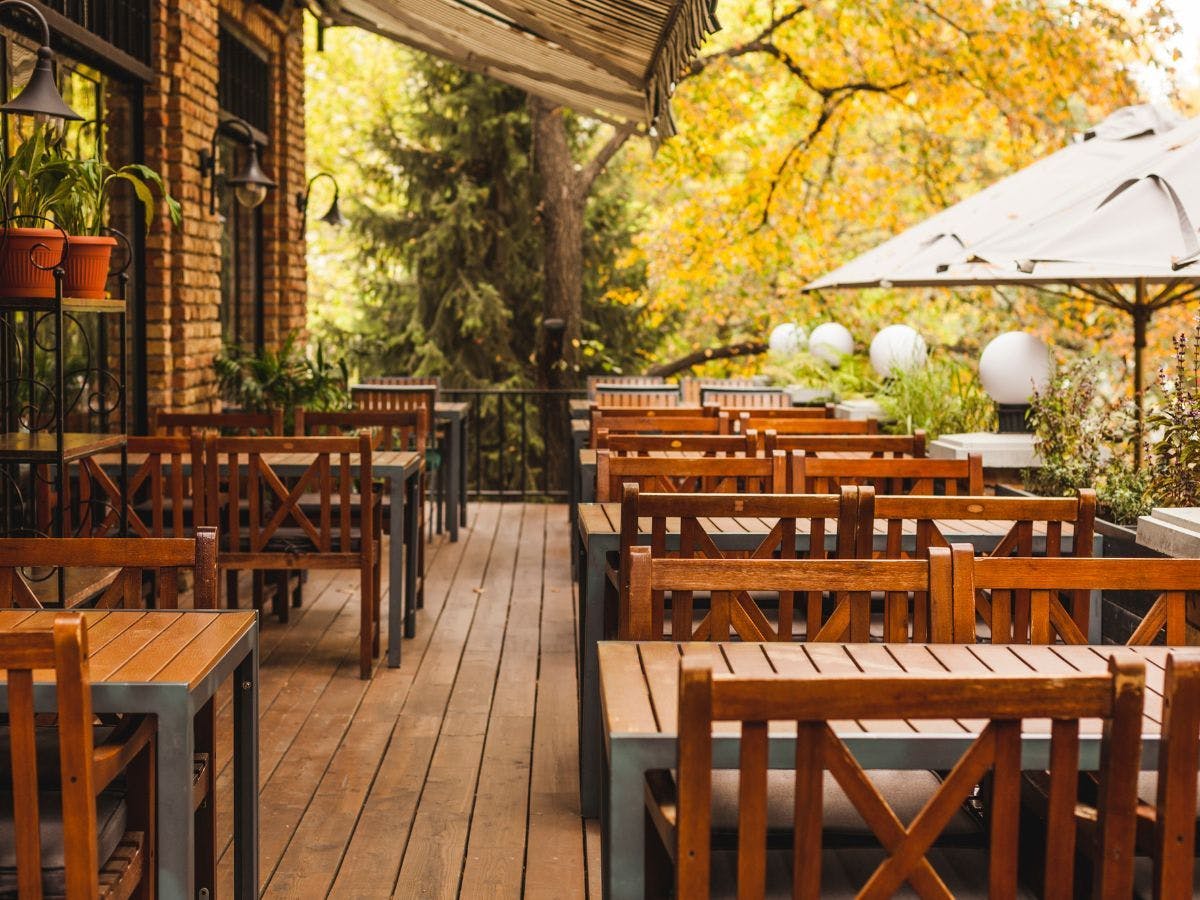
Sourcing and selecting event vendors
Event planners have an extensive network of trusted vendors that they rely on to deliver exceptional services. They work closely with clients to understand their specific needs and preferences, and then recommend vendors who align with those requirements. From caterers and florists to photographers and audiovisual technicians, event planners source and select vendors based on their professionalism, experience, quality of work, and ability to meet budgetary constraints. This careful selection process ensures that the chosen vendors can contribute to the overall success of the event.
Negotiating contracts and pricing
Event planners possess excellent negotiation skills, enabling them to secure favourable contracts and pricing with vendors. They thoroughly review vendor contracts, ensuring that all services, deliverables, and terms are clearly defined. Event planners advocate for their clients' interests, negotiating pricing, payment schedules, cancellation policies, and any additional services or amenities. Their goal is to strike a balance between meeting the client's needs and obtaining the best value for the allocated budget.
Managing vendor relationships
Building and maintaining strong relationships with vendors is a critical aspect of vendor management. Event planners foster open and effective communication channels with vendors, ensuring that expectations are clear and any concerns or issues are promptly addressed. They serve as the main point of contact between the client and vendors, coordinating logistics, sharing event details, and facilitating collaboration. By cultivating positive relationships, event planners create a harmonious working environment that promotes trust, accountability, and exceptional service delivery.
Coordinating vendor logistics and schedules
Event planners excel in the coordination of vendor logistics and schedules, ensuring that all vendors are aligned and well-prepared for the event. They create detailed timelines and schedules, communicating crucial information to vendors regarding load-in and load-out times, setup requirements, and any specific instructions. Event planners oversee the seamless integration of vendor services, such as coordinating food and beverage deliveries, managing audiovisual setup, and coordinating the arrival and departure of equipment. By efficiently managing vendor logistics, event planners ensure that all vendor-related aspects of the event run smoothly.
4. Event Marketing and Promotion
If you are looking to organise a corporate or non-profit event, effective marketing and promotion are essential. Event planners employ various strategies to create buzz, generate excitement, and maximise event attendance. Let's explore the key components of event marketing and promotion.

Developing event marketing strategies
Event planners develop comprehensive marketing strategies tailored to each event's unique goals and target audience. They conduct market research to identify the target demographic and craft compelling messages that resonate with potential attendees.
Event planners leverage various marketing channels such as email marketing, print media, and digital advertising to raise awareness about the event and drive ticket sales. They collaborate with clients to establish key marketing objectives, define the event's value proposition, and implement strategies that ensure the event's message reaches the intended audience effectively.
Social media promotion and advertising
In today's digital age, social media platforms play a pivotal role in event promotion. Event planners leverage popular platforms such as Facebook, Instagram, TikTok, Threads or LinkedIn to create a buzz around the event. They develop engaging content, including visually appealing graphics, videos, and behind-the-scenes glimpses, to capture the attention of potential attendees. Event planners use targeted social media advertising campaigns to reach specific demographics and amplify the event's reach.
Online ticketing and registration platforms
Simplifying the ticketing and registration process is crucial for increasing event attendance. Event planners leverage online ticketing and registration platforms to streamline the attendee registration experience. These platforms offer seamless online ticket purchasing, personalised registration forms, and automated confirmation emails.
Event planners work closely with these platforms to customise the registration process, collect essential attendee data, and facilitate secure online payments. By utilising these platforms, event planners provide attendees with a convenient and user-friendly experience while gaining valuable insights into attendee preferences and behaviour.
D. Collaboration with media and influencers
Collaborating with media outlets and influencers can significantly enhance the reach and impact of an event. Event planners build relationships with journalists, bloggers, and industry influencers to secure media coverage and endorsements. They create press releases, media kits, and exclusive invitations to engage media representatives. Event planners also leverage the power of influencer marketing, partnering with influential personalities who have a significant following in the event's target audience. By collaborating with media and influencers, event planners can access wider networks, tap into established audiences, and create valuable buzz around the event.
5. Event Logistics and Operations
Executing a successful event requires meticulous planning and efficient management of various logistical aspects. Event planners excel in handling event logistics and operations, ensuring a seamless and well-coordinated experience for all stakeholders involved. Let's explore the key components of event logistics and operations.

Creating event timelines and schedules
Event planners create detailed event timelines and schedules to map out the sequence of activities and ensure smooth execution. They identify critical milestones, such as setup and teardown times, guest arrivals, speaker presentations, and networking sessions. Event planners collaborate with all involved parties, including vendors, venue staff, and presenters, to synchronise their activities and establish a cohesive timeline. By meticulously planning the event's schedule, event planners ensure that all elements align seamlessly, minimising downtime and maximising the attendee experience.
Managing event setup and teardown
Efficiently managing event setup and teardown is crucial for a well-organised event. Event planners oversee the setup process, ensuring that all elements, such as staging, lighting, decor, and audiovisual equipment, are properly installed and tested. They coordinate the arrival and placement of equipment and materials, working closely with vendors and venue staff to create the desired event environment. After the event, event planners manage the teardown process, ensuring that all items are safely packed and removed from the venue, leaving it in its original condition.
Coordinating transportation and parking
Transportation and parking arrangements are essential considerations for ensuring smooth attendee access to the event. Event planners coordinate transportation services, such as shuttles or hired vehicles, to facilitate attendee transportation from designated locations to the event venue. They also work with venues and local authorities to secure adequate parking spaces and provide clear directions to attendees. By proactively addressing transportation and parking logistics, event planners enhance the overall attendee experience and minimise any potential logistical challenges.
Handling event emergencies and contingencies
Despite thorough planning, unforeseen emergencies or contingencies may arise during an event. Event planners are well-prepared to handle such situations efficiently and effectively. They develop comprehensive contingency plans, outlining protocols for addressing emergencies, including medical incidents, power outages, or severe weather conditions. Event planners collaborate with venue staff, security personnel, and emergency services to ensure a quick and coordinated response. By having contingency plans in place, event planners prioritise the safety and well-being of attendees while minimising disruption to the event.
6. On-Site Event Coordination
On the day of the event, effective on-site coordination is essential for ensuring a smooth and successful experience. Event planners excel in overseeing event execution, managing staff and volunteers, maintaining a seamless flow, and troubleshooting any issues that may arise. Let's explore the key components of on-site event coordination.
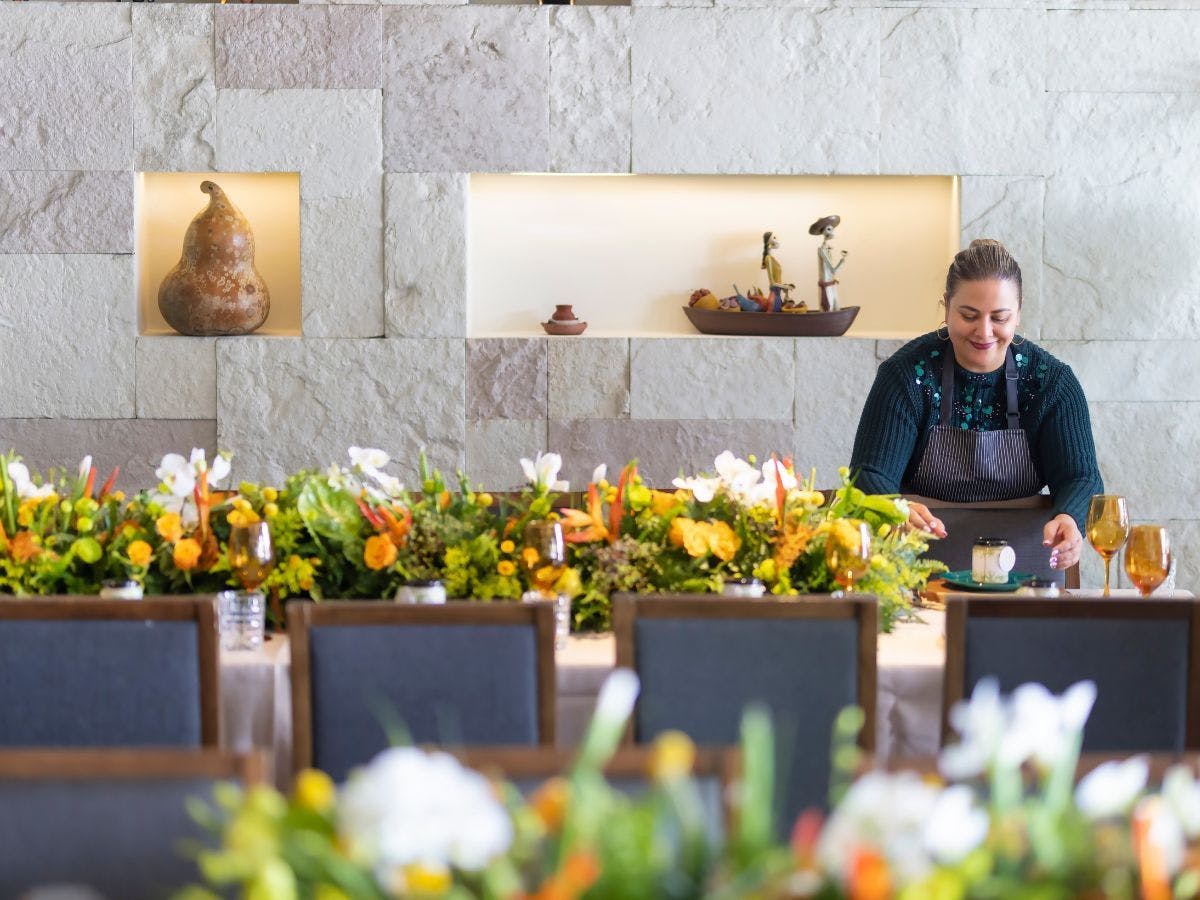
Overseeing event execution on-site
Event planners are the orchestrators of the event, responsible for ensuring that all elements come together seamlessly. They oversee the implementation of the event plan, working closely with vendors, venue staff, and other stakeholders to ensure that each aspect of the event is executed according to plan.
Event planners maintain a keen eye on details, ensuring that decorations are in place, audiovisual equipment is functioning correctly, and presentations or performances are on schedule. By providing hands-on guidance and supervision, event planners ensure that the event unfolds as envisioned.
Managing event staff and volunteers
Event planners coordinate and manage the event staff and volunteers involved in executing various tasks. They assign roles and responsibilities to staff members, ensuring that everyone understands their tasks and operates efficiently. Event planners oversee the training of volunteers, ensuring they are well-informed and prepared to assist with attendee inquiries, registration, and other event-related activities. By managing the event team effectively, event planners create a cohesive workforce that collaborates seamlessly to deliver exceptional service.
Ensuring smooth flow of the event
Creating a seamless flow throughout the event is crucial for maintaining attendee engagement and satisfaction. Event planners strategically design the event layout, considering factors such as traffic flow, designated areas for activities or presentations, and clear signage for guidance. They coordinate timing and transitions between different segments, ensuring a smooth progression of activities. By orchestrating the event's flow, event planners create an immersive experience that keeps attendees captivated and ensures that they can easily navigate the event.
Troubleshooting and problem-solving during the event
Even with careful planning, unexpected challenges may arise during an event. Event planners are skilled at troubleshooting and problem-solving in real-time to address any issues that may occur. Whether it's a technical glitch, a last-minute change in the schedule, or any other unforeseen circumstance, event planners remain calm under pressure and find effective solutions. They have the experience and resourcefulness to adapt quickly, minimising disruptions and ensuring a seamless experience for attendees.
7. Event Entertainment and Activities
Captivating event entertainment and engaging activities are essential elements for creating a memorable and enjoyable experience for attendees. Event planners excel in booking and managing performers, organising interactive activities and games, coordinating audiovisual and lighting arrangements, and fostering guest engagement and participation. Let's delve into the key components of event entertainment and activities.

Booking and managing event performers
Event planners are skilled in sourcing and booking talented performers that align with the event's objectives and theme. They have a wide network of contacts in the entertainment industry and expertise in selecting performers, such as musicians, DJs, dancers, or specialty acts, based on the event's ambiance and desired audience experience. Event planners handle the negotiations, contracts, and logistics associated with booking performers, ensuring a seamless experience from the planning stage to the on-site execution.
Organising interactive activities and games
Engaging activities and games are instrumental in creating an interactive and lively atmosphere at events. Event planners excel in designing and organising activities that encourage attendee participation and networking.
From icebreaker games and team-building activities to interactive workshops and immersive experiences, event planners curate a diverse range of activities tailored to the event's theme and target audience. These activities not only provide entertainment but also foster connections and create lasting memories for attendees.
Audiovisual and lighting arrangements
Audiovisual and lighting arrangements greatly enhance the overall ambiance and impact of an event. Event planners collaborate with professional technicians and designers to create captivating audiovisual and lighting experiences that elevate the event's atmosphere. They consider factors such as sound quality, visual displays, stage lighting, and multimedia presentations to ensure that the event's visual and auditory elements align with the desired mood and messaging. By coordinating these arrangements, event planners create immersive experiences that captivate and engage attendees.
Guest engagement and participation
Encouraging guest engagement and participation is key to creating a vibrant and memorable event. Event planners employ various strategies to involve attendees actively in the event. This may include incorporating live polling or Q&A sessions, facilitating interactive workshops or demonstrations, or creating networking opportunities. Event planners also employ creative methods to encourage guest participation, such as interactive digital platforms, live social media interactions, or interactive displays. By fostering guest engagement, event planners ensure that attendees feel involved, connected, and have a sense of ownership in the event.
8. Catering and Food Services
Exceptional catering and food services are integral to creating a delightful and satisfying experience for event attendees. Event planners excel in menu planning and selection, accommodating dietary restrictions and special requests, coordinating with caterers and vendors, and ensuring impeccable food presentation and service. Let's explore the key components of catering and food services in event planning.

Menu planning and selection
Event planners work closely with clients to create menus that align with the event's theme, budget, and attendee preferences. They collaborate with experienced chefs and catering companies to craft a diverse range of menu options that cater to different tastes and dietary requirements. Event planners consider factors such as the event's time, duration, and format to determine the appropriate menu items, including appetisers, main courses, desserts, and beverages. By meticulously planning and selecting the menu, event planners ensure that attendees are treated to a delectable culinary experience.
Dietary restrictions and special requests
Accommodating dietary restrictions and special requests is a top priority for event planners. They carefully gather information about attendees' dietary needs, including allergies, intolerances, or specific preferences. Event planners communicate these requirements to caterers and vendors, ensuring that appropriate meal options are available and clearly labeled. By considering these dietary restrictions and special requests, event planners ensure that all attendees can enjoy the event's culinary offerings without compromising their well-being or preferences.
Coordinating with caterers and vendors
Event planners take on the role of the liaison between clients and caterers or food vendors. They collaborate closely with these professionals to coordinate all aspects of catering and food services. Event planners communicate the event's requirements, including the menu, quantity, serving style, and desired presentation. They facilitate menu tastings, negotiate contracts, and ensure that all necessary permits and licenses are obtained. Event planners also coordinate logistics such as food delivery, setup, and teardown, ensuring that the catering and food services run smoothly.
Food presentation and service
Food presentation and service play a crucial role in enhancing the overall dining experience at events. Event planners work with caterers and vendors to ensure that food is beautifully presented, garnished, and arranged in an appealing manner. They consider the event's theme and atmosphere when determining the appropriate serving style, whether it's a buffet, plated service, or interactive food stations. Event planners oversee the service staff, ensuring that they are professional, knowledgeable, and attentive to attendees' needs. By paying meticulous attention to food presentation and service, event planners elevate the overall dining experience and leave a lasting impression on attendees.
9. Event Budgeting and Financial Management
Effective budgeting and financial management are essential components of successful event planning. Event planners excel in creating event budgets and cost estimates, tracking expenses, implementing cost-saving strategies, and evaluating return on investment (ROI). Let's explore the key components of event budgeting and financial management.
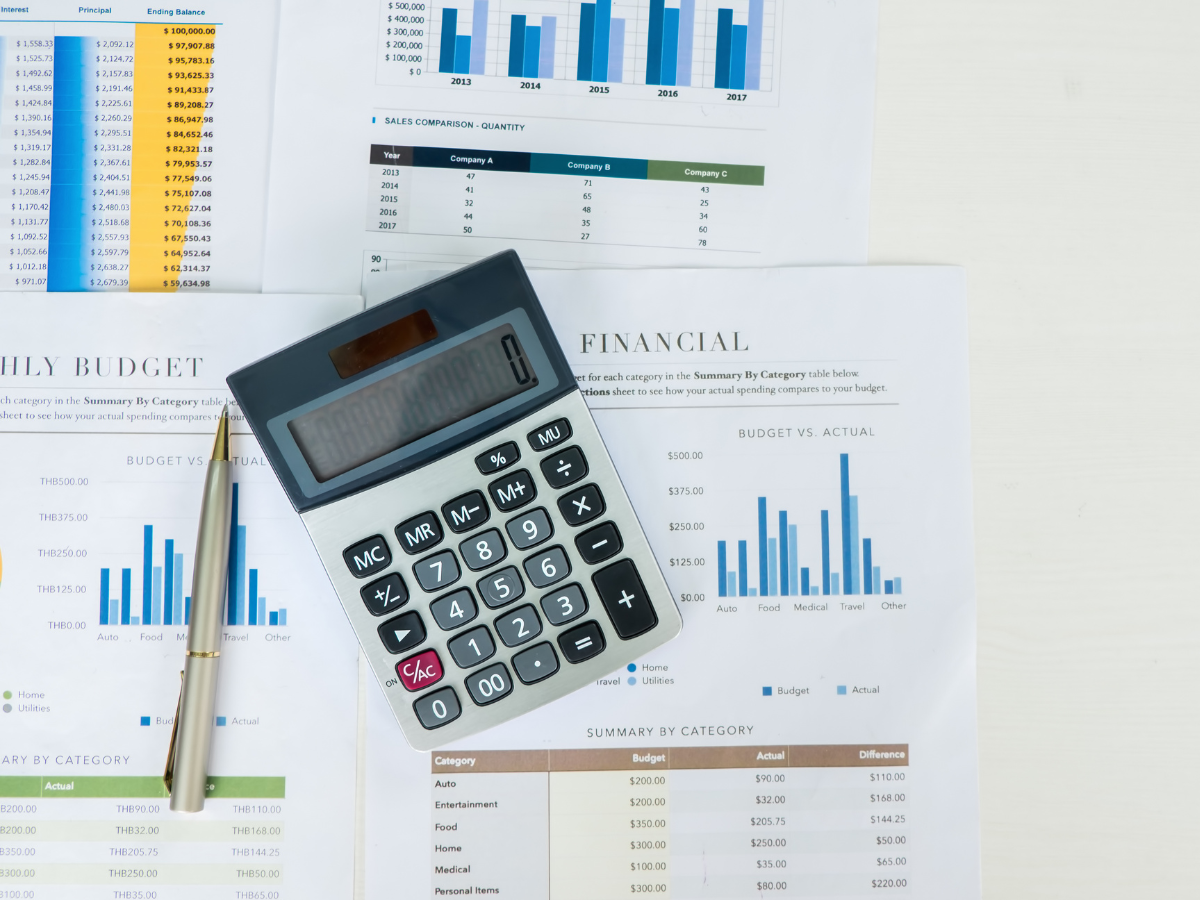
Creating event budgets and cost estimates
Event planners work closely with clients to establish realistic budgets for their events. They meticulously analyse the event's requirements and desired outcomes, considering various aspects such as venue costs, vendor fees, marketing expenses, catering, entertainment, and technical requirements. Event planners develop comprehensive budgets and cost estimates, ensuring that all anticipated expenses are accounted for. By creating detailed budgets, event planners help clients gain a clear understanding of the financial aspects of their event and make informed decisions regarding resource allocation.
Tracking expenses and managing finances
Once the event is underway, event planners closely monitor and track expenses to ensure that they remain within the allocated budget. They implement financial management systems, such as tracking software or spreadsheets, to record and categorise expenses accurately.
Event planners maintain transparent and open communication with clients, providing regular financial reports and updates. They manage vendor invoices, payment schedules, and contracts, ensuring that all financial obligations are met on time. By diligently tracking expenses and managing finances, event planners maintain control over the event's financial aspects.
Cost-saving strategies and tips
Event planners are adept at implementing cost-saving strategies that help clients optimise their event budget. They leverage their industry knowledge and relationships to negotiate favourable terms with vendors and suppliers. Event planners suggest alternative options or creative solutions to achieve the desired outcomes within budget constraints. They identify areas where costs can be reduced without compromising the quality or impact of the event. By implementing cost-saving strategies, event planners help clients maximise their resources and achieve a successful event within their financial means.
Evaluating return on investment (ROI)
Assessing the return on investment (ROI) is crucial to determine the effectiveness and success of an event. Event planners analyse the event's objectives and key performance indicators (KPIs) established during the planning phase. They collect data on attendance, attendee feedback, lead generation, sales, or any other relevant metrics. Event planners evaluate the ROI based on these indicators, providing clients with valuable insights into the event's impact and effectiveness. By evaluating ROI, event planners assist clients in making data-driven decisions for future events and improving their overall event planning strategies.
10. Types of Events
Event planning services cater to a diverse range of events, each with its unique requirements and objectives. Event planners specialise in organising various types of events, including corporate events, weddings and engagement parties, social events, and nonprofit and charity events. Let's explore each of these event types in more detail.

Corporate events (conferences, seminars, product launches)
Corporate events play a crucial role in business growth, networking, and brand building. Event planners excel in organising corporate events such as conferences, seminars, and product launches. They work closely with businesses and organisations to understand their objectives and design events that align with their goals. Event planners handle all aspects of corporate event planning, including venue selection, logistics coordination, audiovisual setup, catering, and marketing. They ensure that these events provide a professional and engaging environment for attendees, promoting knowledge sharing, networking, and showcasing new products or services.
Weddings and engagement parties
Weddings and engagement parties are significant life events that require careful planning and attention to detail. Event planners specialise in creating memorable and seamless wedding experiences. They work closely with couples to understand their vision, preferences, and cultural traditions. Event planners coordinate various elements of weddings and engagement parties, including venue selection, decor, catering, entertainment, and guest management. They ensure that these events reflect the couple's unique love story, creating a magical ambiance that leaves a lasting impression on guests.
Social events (birthday parties, anniversaries, reunions)
Social events bring people together to celebrate special occasions and create cherished memories. Event planners excel in organising a variety of social events, including birthday parties, anniversaries, and reunions. They collaborate with clients to understand their preferences, themes, and desired atmosphere for the event. Event planners handle all aspects of social event planning, from venue selection and decor to entertainment, catering, and guest management. They create personalised experiences that reflect the celebrants' personalities, ensuring that these events are joyous and unforgettable gatherings.
Nonprofit and charity events
Nonprofit and charity events serve as platforms for raising funds, awareness, and support for important causes. Event planners specialise in organising these events, working closely with nonprofit organisations to create impactful experiences. They understand the unique challenges and objectives of nonprofit events, such as galas, fundraisers, or awareness campaigns. Event planners manage event logistics, sponsorships, volunteer coordination, marketing, and donor engagement. They create environments that inspire attendees to support the cause, maximising the event's impact and fundraising efforts.
11. Event Planning FAQs and Tips
Planning an event can be an exciting yet daunting task. To help you navigate the event planning process successfully, we've compiled a list of frequently asked questions, insider tips and tricks, advice on choosing the right event planner, and testimonials from past events. Let's dive in!
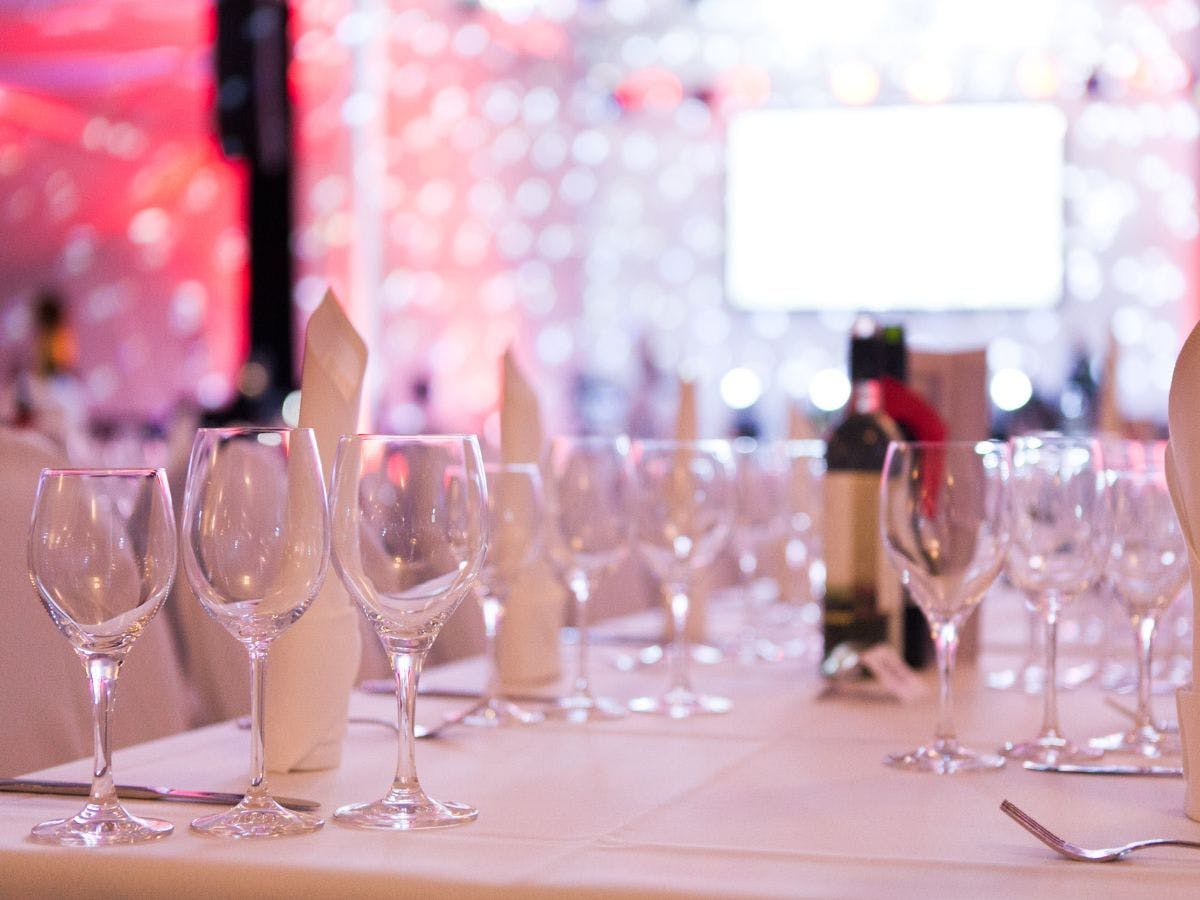
Frequently asked questions about event planning
Q1: How far in advance should I start planning my event?
The ideal timeframe for event planning varies depending on the size and complexity of the event. For large-scale events, it's recommended to start planning six to twelve months in advance. Smaller events may require a three to six-month planning window.
Q2: How much does event planning cost?
The cost of event planning services can vary significantly based on factors such as the event type, size, location, and desired level of service. It's best to consult with event planners to get accurate cost estimates tailored to your specific event requirements.
Q3: Can I plan an event on my own or do I need an event planner?
While it's possible to plan smaller events independently, hiring an event planner offers numerous benefits. Event planners bring expertise, industry connections, and experience in managing the complexities of event logistics, allowing you to focus on enjoying the event rather than getting overwhelmed by the details.
Insider tips and tricks for successful events
💡 Tip 1: Define your event objectives and target audience from the start. Having clear goals in mind will guide your planning decisions and help you create a focused and impactful event experience.
💡 Tip 2: Build a comprehensive timeline and checklist. Breaking down tasks and setting deadlines will keep you organised and ensure that nothing falls through the cracks.
💡 Tip 3: Prioritise communication and collaboration. Regularly communicate with vendors, venue staff, and your event planner (if hired) to ensure everyone is on the same page and working towards a common goal.
Choosing the right event planner
- Consider their experience and expertise. Look for event planners with a proven track record and experience in organising events similar to yours. They should understand your vision and have the capabilities to bring it to life.
- Evaluate their communication and listening skills. A good event planner should actively listen to your ideas, be responsive to your questions and concerns, and communicate clearly throughout the planning process.
- Check their network and vendor relationships. A well-connected event planner can help you secure reliable vendors, negotiate favourable contracts, and access resources that enhance the quality of your event.
Testimonials and case studies of past events
Reading testimonials and case studies from past clients can provide valuable insights into an event planner's capabilities and the successful events they have organised. Look for testimonials that highlight the planner's professionalism, attention to detail, and ability to deliver exceptional experiences.
Summary
Event planning services are essential for creating successful and memorable events. This definitive guide has explored various aspects of event planning, providing valuable insights into the industry and the services offered. Here's a recap of the key points covered in this guide:
<aside> 💡 TLDR: If you’ve skimmed the article and just want a summary of the key points, just read the below
</aside>
Introduction to Event Planning Services
Event planning services offer numerous benefits, including expertise, industry connections, and efficient execution.
Event planners specialise in a wide range of events, including corporate events, weddings, social events, and nonprofit events.
1. Event Planning Process
The event planning process involves consultation, budgeting, concept development, venue selection, and logistical planning.
2. Event Design and Decor
Event design encompasses creating the desired atmosphere, selecting themes and colour schemes, and arranging decorations and centrepieces.
3. Vendor Management
Event planners handle sourcing and selecting vendors, negotiating contracts, managing relationships, and coordinating logistics.
4. Event Marketing and Promotion
Event planners develop marketing strategies, utilise social media promotion, leverage online ticketing platforms, and collaborate with media and influencers.
5. Event Logistics and Operations
Event planners create timelines, manage setup and teardown, coordinate transportation and parking, and handle emergencies and contingencies.
6. On-Site Event Coordination
Event planners oversee event execution, manage staff and volunteers, ensure a smooth flow, and troubleshoot during the event.
7. Event Entertainment and Activities
Event planners book performers, organise interactive activities, coordinate audiovisual and lighting arrangements, and encourage guest engagement.
8. Catering and Food Services
Event planners assist in menu planning, accommodate dietary restrictions, coordinate with caterers, and ensure food presentation and service.
9. Event Budgeting and Financial Management
Event planners create budgets, track expenses, implement cost-saving strategies, and evaluate return on investment.
10. Types of Events
Event planners specialise in organising corporate events, weddings, social events, and nonprofit events.
11. Event Planning FAQs and Tips
Frequently asked questions were addressed, insider tips were shared, advice on choosing the right event planner was provided, and the importance of testimonials and case studies was highlighted.
By understanding these key components of event planning services, you can make informed decisions and collaborate effectively with event planners to create remarkable and successful events. If this article has helped you, please share this guide along for anyone who is interested in event planning services!
About Victor Chan
Victor Chan is a dedicated researcher in the event planning space, exploring the intricacies of creating memorable experiences. With a focus on innovative strategies and emerging trends, Victor's work contributes to the evolving field of event coordination. He seeks to offer valuable insights and fresh perspectives to enhance the practice of event planning.

